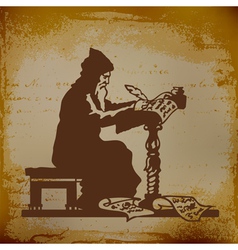The enlightenment teaching of the Essene was known as THE WAY. This teaching became the final interpretation of the Law and the Prophets, as revealed by Yeshua Messiah. The Way also became the transitional teaching of the early church.

PAGANS AND SYNCRETISM
The Jewish people waged a spiritual battle against pagan syncretism for centuries. This off and on again conflict always divided and weakened the Jewish people and the Jewish state. Similarly and due to syncretic marriages, Ezra initiated strong marriage prohibitions (450 BC). As the Temple was rebuilt and the restoration of Jerusalem completed, the legal drift Ezra established continued until the time of Jesus.

In the pagan world, Baal was understood as the god of the sky, particularly the god of storms or rain. His presence or dictate brought the rain, the wind, and good weather. Good harvests would be attributed to Baal. Since ancient peoples relied upon crops for prosperity, including feed grain for their animals, the god of the sky was their most important god. Thus Baal, and his consort Asherah, the goddess of fertility, were the two most common pagan gods.
These gods went by other names as well. Lilith was the Hebrew Bible’s name for the Canaanite Asherah (Astarte, Babylonian). Baal is the reference Jesus gives when he mentions Satan (Lucifer) falling from the sky. Lk. 10.18: Yeshua said to them, “I saw Satan fall like lightning from heaven. (19) Remember, I have given you authority; so you can trample down snakes and scorpions, indeed, all of the Enemy’s forces; and you will remain completely unharmed. Nevertheless, don’t be glad that the spirits submit to you; be glad that your names have been recorded in heaven,” CJSB (Complete Jewish Study Bible).*
*First mentioned in Isaiah 14.12, “How art thou fell from heaven, O Lucifer, son of the morning!” Taken today as a prophetic scripture referring to Jesus, who could ‘make Satan fall’; not to be confused with ‘morning star’ that references Venus (feminine). Satan, Baal, and Lucifer are masculine. Jesus often referred to Isaiah during his ministry, both scripturally and prophetically. Among the Jewish people, Isaiah was considered the greatest of the prophets (speakers).
Syncretism, worshiping within conflicting religions, is rife throughout the Bible. The making of the golden calf during Exodus (Ex. 32.4-8) is a good example. In later times Baal became the god of optional choice for the Jews. Baal oversaw people’s daily life, Baal was Lord of the Sky. Serving a different need, the god of “I Am That I Am” became the god of special events, as the Exodus illustrates quite clearly. YHWH was the god you took into battle. He was the god who rescued you from danger or the pit.
As mentioned, mixed marriages accounted for much of the syncretic influence. By mixing with those who believed in other gods, especially prevalent in the northern regions (Israel), it became easy for the Jews to lose their spiritual pathway. Teachings become mixed, rituals become mixed, and thus the pathway diverges. It is also true that sexual rites would also hold a great attraction to syncretic practices. Various attempts were made to keep the Jewish religion-ethnic group separated from other ethnicities and those who worshiped other gods. This attempt often failed.*
*See the Gideon series.
Unlike Baal, the god of the sky, and Geb, the Egyptian god of the earth, the One True God was everywhere, all at once, ever-present, and in every place. Later, those qualities become determinant as to the supremacy of the One True God. But what does this omnipresence mean in the daily life of the Jewish people?
If you look into the sky and perceive Baal but then look at a tree and perceive another god, you may perceive a unified hierarchy of gods. Regardless of this apparent unity, they are never One and were known or believed to fight with one another. True peace and Oneness can never be found by pursuing the many gods. This pathway notion or approach still holds true today.
For example, a pagan may be a tradesman. He would place the ‘god of honesty’ in his trading room. As tradition would have it, plotting dishonesty in front of such a statue was unacceptable. But if you wanted to speak of dishonest matters, you could remove yourself from that room to hatch such plans. By contrast, and as the development of Judaism continues, especially when there was no syncretic influence, the One True God lived with you, even within your tent. There could be no way to avoid His presence. He would know your comings and goings.

GOD OF THE TENT
Abraham’s people were tent people. Praying to YHWH would not require any particular place or time. YHWH knew everything about your family and yourself. He knew when you ate, what you ate, and who might have eaten a pomegranate that day. YHWH lived with you in your tent, just as would be the case today. There were no idols, no writing of His name or speaking His name, due to His name possibly being misapplied. ‘Adonai’ (Lord) was used instead of directly stating His name, YHWH.
YHWH’s omnipresence made Him sacred in a manner no other god could be. He was whole, at one within Himself. Likewise, He considered everyone within the whole of circumstances—He was always with you but did not play favorites between one person and another. Your life may have a plan, but of necessity, He takes every circumstance as it arrives. In doing so, each person becomes dealt with individually, even within a group (tribe). Your personhood He respects equally with others.
But, there is another tradition that is not commonly known and is seldom mentioned. Within the Yahwist tradition, harsh words, unrighteous speaking, or even mild blasphemy would cause another to caution you. The reasoning behind the caution is the understanding that the One True God, as omnipresent, is aware of your words and your behavior. There is no place you might go that He cannot hear you. He is with you always and is perceived as a protector and comforter. Thus, with Him each person shares a certain commonality. This value of commonality extends into every form of social commerce. For the Jew, God oversees all events and all persons.
YHWH was the first god who could grant not just favor but grace (Noah, Gn. 6.8). He did not depend upon man to preserve the remnant of Himself on earth but could preserve the remnant as He saw fit, as the story of Noah, and later Abraham, illustrate. He was not the god of your configuration. He was self-evident. He was “I Am that I Am.”
This shift in consciousness had a profound effect on mankind. The enlightenment opens doors to spiritual understanding, allowing a depth of thinking that could not be reached by contemplating the activities of a sky god nor the pleasures of Asherah. Mankind enters into a whole new level of intelligence, one more cognitive and abstract, and paves the way for more similar teachings to follow: some mathematical, some in metal-work and agronomy, harnessing of power through invention. The creation (revelation) of the enlightenment principle, followed by the experience, and wedded to sound spiritual and religious practice, much later coalesced into the teaching of the Way. Abstract thinking, as well as cognition, allows for the pursuant study toward the enlightenment into God.
In revealing the message of god’s nature, Jesus equates God with love. He tells us to love God with our heart, mind, and soul (Mk. 12.30), noted as the individual’s first commandment. However, the previous verse (29) is not mentioned so often. It alludes to the unification and oneness of teaching of the Way: “Hear, O Israel, the Lord our God is one [Lord]:” Verse 31 is accounted as the second commandment, “Namely this, Thou shalt love thy neighbor as thyself.”* That God is equated with love is an expansive view in which all men may freely participate. Thus, God is Unity, He is at one with Himself, and thus you operate within His creative principle and are at one with Him (Jn. 17.22-23).
*Love and Oneness
In the ancient pagan world of the Middle East, none of the above attributions had before entered the earth scene. The very concept of “I Am that I Am” had never been truly understood. The various gods were always best understood by what they were used for! We may speak the Word (Spirit) and pray in supplication, but we do not use YHWH. He is above our use but may answer our prayers. He is above our words, for the Word came from Him. He is above our conception, for He is His conception and thus endless, and there is always room to understand more about His qualities. He becomes endless knowledge, He is endless-love-the-great-creation. He does not possess faith, He is faith—faith thus becomes embodied, interwoven, within the nature of the universe itself.
YHWH becomes the God-of-the-tent, ever-present, ever-faithful, complete, and full of grace.
More on this subject?

God Bless!
Usually I don’t learn post on blogs, but I would like to say that
this write-up very compelled me to check out and do so! Your writing taste has been amazed me.
Thanks, quite great article.
To Celinda:
A few comments have been made about my writing style, so thank you. My writing style is more cognitively and revelatory oriented. In other words, I write so people are led to the next understanding, so that the revelation is easier to receive instead of only an intellectual grasp. If you sow good seed the spirit within will add to your revelation, as pertains to my articles, and will soon broaden into your life as a whole. Thank you, again.
C. Ray
Thanks for another fantastic post. Where else could anyone get that kind of info in such a perfect way of writing? I have a presentation next week, and I am on the look for such info.
you are truly a exxcellent webmaster. The web sjte loading
speed iis amazing. It sort of feels that yyou are dong any unique trick.
In addition, The contents are masterwork. you’ve done a
excellent job in this topic! https://zeleniymis.com.ua/
As I web-site possessor I believe the content matter here is rattling great , appreciate it for your efforts. You should keep it up forever! Good Luck.